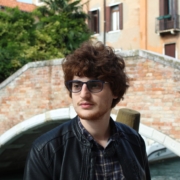Andrea Negro is a PhD student in historical studies at the universities of Padua and Venice where he is working on a project called “The toxic impact of mine work. Miners, occupational diseases and labour medicine between Belgium and Italy from 1946 to the present”. Some of his topics of interest are deindustrialization, critical studies of industrial heritage, and workers’ occupational diseases. The methodological thread that unites his studies is using oral sources to intercept individual and collective trajectories of history, an approach related to memory, narratives, and representations of work. In his previous research, he dealt with memories of steelworkers in northeastern Italy for his master’s thesis at Ca’ Foscari, followed by Professor Gilda Zazzara.
PROJECT STATEMENT
The toxic impact of mine work. Miners, occupational diseases and labour medicine between Belgium and Italy from 1946 to the present.
My project aims to study the consequences of working in Belgian mines among Italian miners who emigrated due to the “Men for Coal” agreement signed by the two states in 1946. This agreement has triggered a process of commodification of migrants and exploitation of workers, causing many consequences. Studies related to post-World War II Italian mining emigration to Belgium focus mainly on migration dynamics, the discrimination suffered by Italian miners, the working conditions, and more in general on the decade of main activity of the mines (1946-1956). Less attention has been given to issues like the deindustrialized post-mining contexts, occupational diseases and, more in general, to the toxic legacy of the mines that is still present today. My main focus is occupational diseases and how they impact worker communities, families and individuals, giving special attention to those who, once became ill, decided to return to Italy, bringing with them the marks on their bodies of the work, and consequently, also bringing the toxicity back to their communities of origin. I investigate those topics through the methodological tools of deindustrialization, labour history, oral history and from a gender perspective. Concerning the latter when attention has been given to women, it was often done by considering them only in their traditional role as wives who supported their miner husbands, as “washers of the coal-stained overalls,” and other stereotypical representations. I aim to approach this issue from a different perspective, looking at it with critical keys and deconstructing the established stereotypical narratives. On the other hand, occupational illness (in this case especially silicosis and fibrosis) brings with it the deconstruction of the masculinity of miners who, deprived of their health, feel humiliated to find themselves in a sick body that gradually loses its strength, which no longer allows them to work, leading to the inevitable epilogue of a suffering and premature death.
Email: andrea.negro.1@phd.unipd.it





